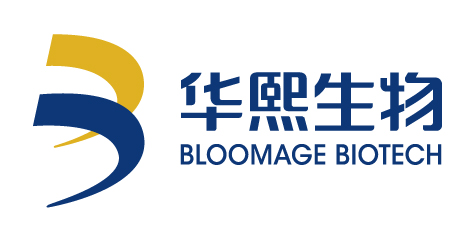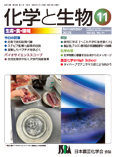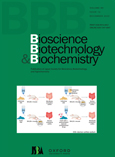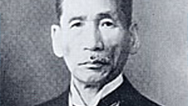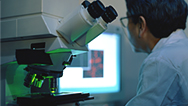Greetings from JSBBA President
June 26, 2023 Last Updated
Makoto Nishiyama
The 64rd President of the Japan Society for Bioscience, Biotechnology, and Agrochemistry,
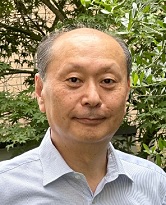 I am Makoto Nishiyama, the President of the Japan Society for Bioscience, Biotechnology, and Agrochemistry, elected on May 26, 2023. I would like to greet the members and deliver a few words.
I am Makoto Nishiyama, the President of the Japan Society for Bioscience, Biotechnology, and Agrochemistry, elected on May 26, 2023. I would like to greet the members and deliver a few words.
"Agricultural chemistry" is a unique academic field in Japan characterized by the dual focus on "basic" and "applied" research, which aims at the elucidation of the causes and mechanisms underlying broad phenomena relatively familiar to our life, the discovery of their unique biological functions, and the development of applications of the results obtained. The Japan Society for Bioscience, Biotechnology, and Agrochemistry was founded in 1924 by Dr. Umetaro Suzuki as the first president. The society aims to promote progress, dissemination, and education in agricultural chemistry and contribute to developing science, technology, and culture. In the coming year, 2024, this society will mark the 100th anniversary of its foundation. I am humbled to accept the position of President of the Society at this major milestone. I am keenly aware of the weight of my mission and responsibility.
Each field of study, such as chemistry, biology, and physics, has developed and matured, and research in their boundary areas is being conducted in a spectacular manner. In addition, for the past 30 years, there has been a trend called industry-academia collaboration, which strongly encourages the private sector to utilize knowledge and technology from academia. However, I do not think that this is new. The fundamental concept of agricultural chemistry is originally the chemical analysis of biological phenomena, and the discipline itself is an interdisciplinary study that integrates "chemistry" and "biology." In addition, there is no doubt that agricultural chemistry has strongly promoted industry-academia collaboration since the inception of the study field and has made significant achievements to date. In other words, what is recommended, as described above, has just been done as routine in agricultural chemistry. Therefore, agricultural chemistry has been one step ahead of other research fields with innovative and cutting-edge technologies and ideas. Recently, agricultural chemistry has been incorporating physics and computational science into our chemistry and biology studies. The environment is becoming increasingly conducive to developing diverse research with a broad perspective, which is the specialty of agricultural chemistry. We, the members, should take full advantage of this benefit.
The spread of the COVID-19 pandemic forced the cancellation of the 2020 annual meeting in Fukuoka, and we were forced to forgo holding the annual meetings in a face-to-face format for the following three years. During that time, the online environment was largely improved, and in the last three years, the annual meetings were held in an online format and partly in a hybrid format, allowing everyone to participate in the annual meetings safely. These annual meetings have achieved a certain level of success in terms of providing an opportunity to hear these presentations and get the information you need. However, I also felt that meetings in the current online format could not provide the +α effect created through close communications, such as face-to-face presentations, question-and-answer sessions, and actual encounters between people. As mentioned above, agricultural chemistry is a multidisciplinary academic field, where industry, academia, and government have always been innovative and able to stimulate each other. Those situations have led to the significant development of today's agricultural chemistry. In this context, our annual meeting is a valuable place where people from various disciplines from different sectors, such as academia and industry, gather. I believe that direct communications by various people with antennas in many different directions provided sources of new ideas and led to new fusions. While continuing this tradition, we intend to take advantage of the convenience of the powerful online communication tool established as a byproduct of the COVID-19 pandemic to further enhance our many activities, including annual meetings, lectures, and publications.
As this society builds on its 100 years of history and starts moving toward its next 100 years, I would like to do my utmost to increase the social contribution of agricultural chemistry research by providing an environment in which members can understand or reaffirm the innovativeness and merits of the unique academic field of agricultural chemistry and make full use of them in their research and development. I appreciate the support and cooperation of our members.































